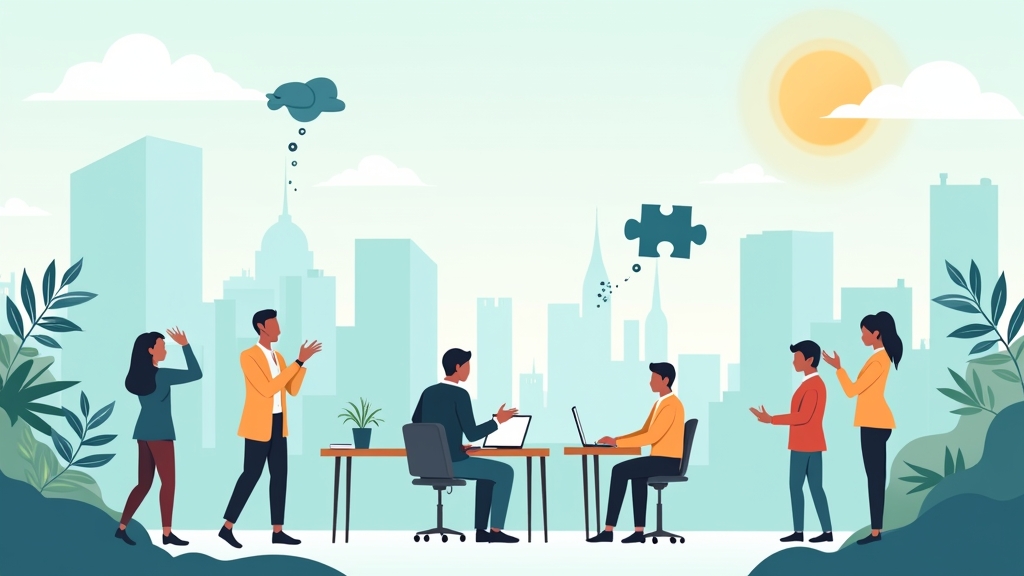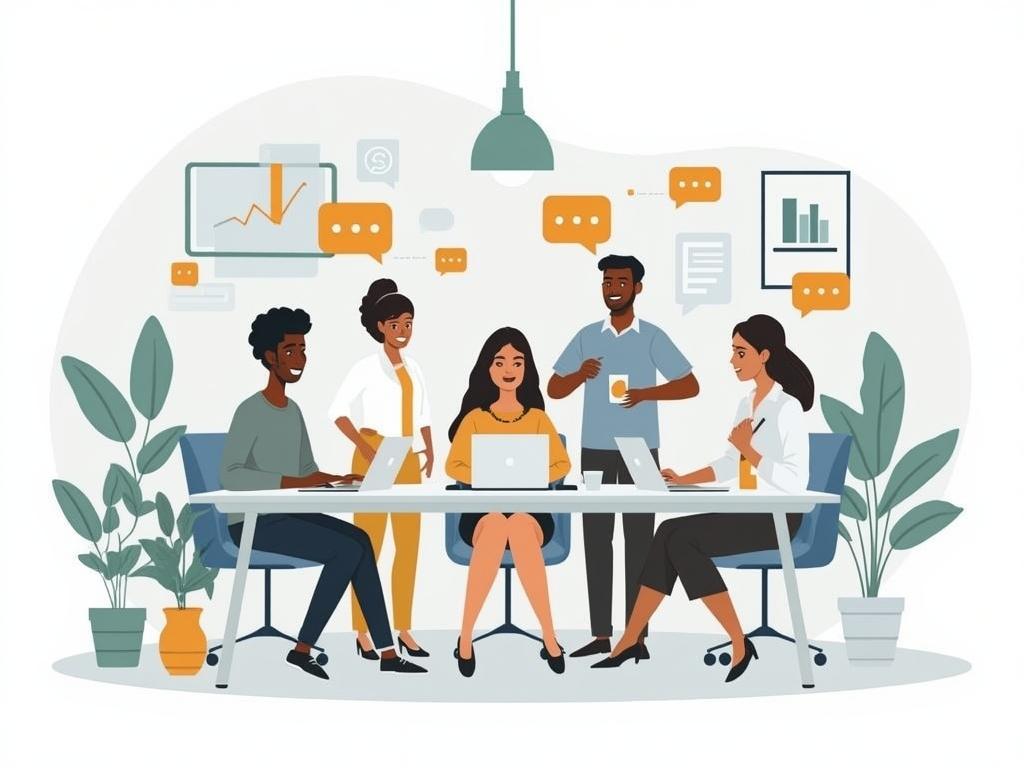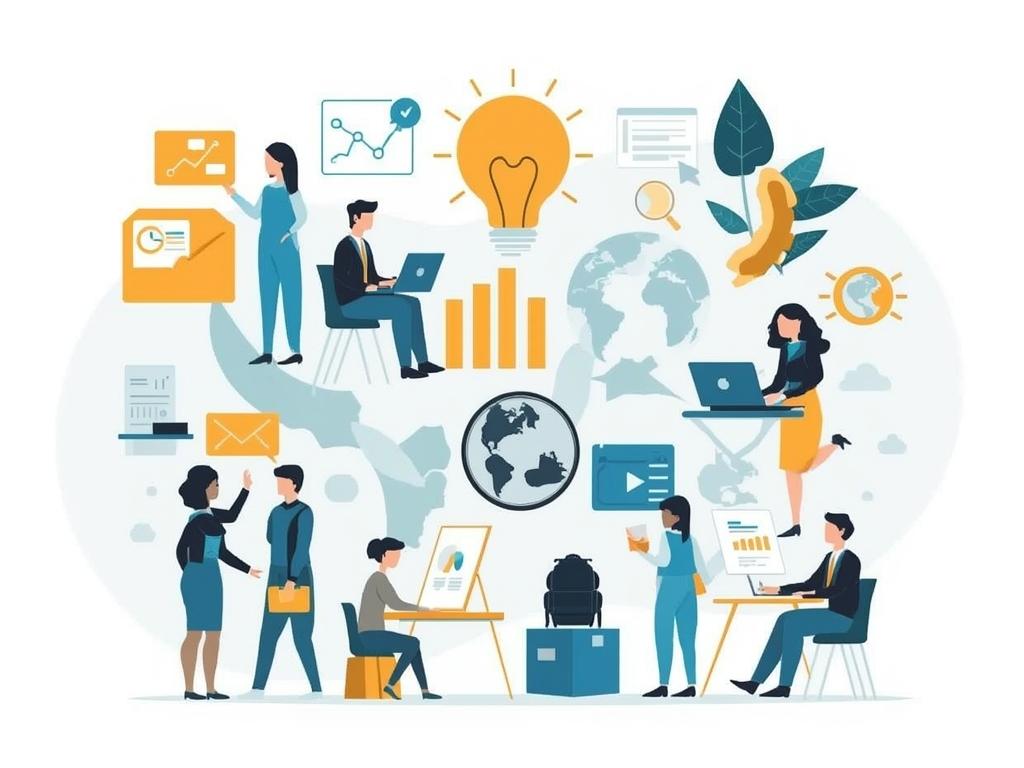What is emotional intelligence and why is it essential for dealing with frustrations?
Have you ever wondered why some people seem to cope better with the challenges of everyday life, while others are overwhelmed by irritation or discouragement? The answer may lie in emotional intelligenceThis is a skill that allows us to recognize, understand and manage our emotions and those of others.
Emotional intelligence is made up of five main pillars: self-knowledge, self-control, self-motivation, empathy and social skills. When we develop these skills, we are able to face frustrations with more balance, avoiding impulsive reactions that can make the situation worse. Imagine, for example, receiving criticism at work. Those with high emotional intelligence are able to analyze the feedback objectively and learn from it, while those with low emotional regulation may react with anger or discouragement.
But why is this so important? Frustrations are inevitable - from an unexpected traffic jam to a rejected project. If we don't know how to manage these emotions, the accumulated stress can affect our mental health, relationships and productivity. According to Daniel Goleman, psychologist and author of the best-seller Emotional Intelligence80% of success in adult life is related to this skill.
How about starting to observe how you react to the little irritations of everyday life? Do you notice that some situations get you down more easily? That's the first step towards developing a more resilient mind.
Self-knowledge: the first step to managing emotions
Before you can learn to control your emotions, you need to getting to know them. Emotional self-knowledge is the basis for dealing with frustrations, as it helps us to identify patterns of behavior and triggers that set off negative reactions.
Think of a recent situation in which you felt frustrated. What exactly happened? How did your body react (increased heart rate, muscle tension)? What thoughts went through your head? We often act on "autopilot", without realizing that secondary emotions - such as anger - can mask deeper feelings, such as fear or insecurity.
An effective technique for increasing self-knowledge is the emotional diary. Take a few minutes at the end of the day to write down situations that have caused frustration, describing not only the event, but also your emotions and reactions. Over time, you'll begin to identify patterns. For example: "Every time my boss doesn't answer my email quickly, I get anxious and think he's dissatisfied with my work".
Another powerful exercise is mindfulness meditationIt's a practice that trains the mind to observe emotions without judgment. As you practice, you realize that feelings are fleeting and don't define who you are. How about trying it out for five minutes today?
Self-control: how to avoid impulsive reactions
Have you ever said or done something out of anger and then regretted it? Impulsive reactions are common when we haven't mastered emotional self-control. The good news is that this skill can be trained.
Advertising
The secret lies in create a pause between the stimulus and the response. When something frustrating happens, our emotional brain (limbic system) tends to dominate, but we can trigger the prefrontal cortex - responsible for logical reasoning - with simple techniques. For example, if someone constantly interrupts you in a meeting, instead of fighting back, try taking three deep breaths before responding. This brief pause reduces the emotional intensity.
Another strategy is rewrite the meaning of the situation. Frustrations often arise from unmet expectations. If you were hoping for a promotion and didn't get it, instead of thinking "I'm a failure", try: "This is an opportunity to identify areas for improvement". Psychologist Carol Dweck calls this a "growth mindset" - believe that challenges are chances to evolve.
Also practice distancing technique. Imagine that you are watching the frustrating scene as an outside spectator. How would you advise a friend in this situation? This perspective reduces the emotional burden and brings clarity.
Self-motivation: turning frustrations into fuel
How do you react when things don't go according to plan? Some people give up, while others use frustration as motivation to keep going. Self-motivation is the ability to maintain focus and persistence, even in the face of obstacles.
An effective method is set realistic goals and break them down into small steps. If you're frustrated at not being able to learn a new language, for example, instead of giving up, set yourself daily goals, such as studying 20 minutes a day. Celebrate every achievement, no matter how small - it reinforces the feeling of progress.
Another tip is cultivate a positive internal dialog. Phrases like "I can do better" or "This is temporary" reprogram the mind to see challenges as opportunities. Avoid perfectionism: remember that making mistakes is human and part of the process.

A visualization is also a powerful tool. Imagine yourself overcoming the situation that is causing you frustration today. How do you feel? What actions did you take to get there? This technique activates the same areas of the brain as real action, boosting confidence.
Empathy: understanding the emotions of others to reduce conflicts
Many frustrations arise from misunderstandings or interpersonal conflicts. Developing empathy - the ability to put yourself in the other person's shoes - helps you deal with these situations better.
For example, if a coworker seems rude, instead of taking it personally, consider: "He may be going through a personal problem". Empathy doesn't justify bad behavior, but it allows us to respond more wisely.
Practice active listening. When someone is talking, really concentrate on what is being said, without interrupting or mentally preparing your response. Ask: "I understand that you're upset because... Am I right?" This shows respect and makes room for collaborative solutions.
Another exercise is observe non-verbal language. Facial expressions, tone of voice and posture reveal a lot about someone's emotional state. If a friend says "It's okay" but avoids eye contact, maybe they need support.
Social skills: communicating assertively to avoid frustration
How many times have you been irritated because you couldn't express your needs clearly? Assertive communication is key to preventing frustration and building healthy relationships.
Assertiveness is say what you think without being aggressive or passive. For example, instead of getting annoyed because your partner doesn't help with the housework, try: "I feel overwhelmed when I have to do everything myself. Can we share the responsibilities better?"
Use the sandwich technique for difficult feedback: start with a positive point, then point out the area for improvement and end with encouragement. Example: "I admire your dedication, but I notice that deadlines are being missed. Shall we adjust this together?"
Also practice not polite. Many frustrations come from overdoing things because we're afraid to say no. Remember: you don't have to justify excessively. A simple "Thank you for the opportunity, but I won't be able to take it on right now" is enough.
Emotional resilience: how to recover faster from adversity
Life is not about avoiding frustration, but about recover from them. Emotional resilience is the ability to adapt and move on, even after falls.
One way to strengthen resilience is to cultivating a support network. Talking to friends, family or a therapist about your frustrations relieves the emotional burden and offers new perspectives. You don't have to face everything alone.
Another strategy is learn from past experiences. Reflect: "What is this frustration teaching me?" Perhaps you'll discover that you need to be more patient, or that certain situations require extra preparation.
Finally, take care of your physical well-being. Sleep, diet and exercise have a direct influence on emotional balance. When the body is healthy, the mind copes better with stress.
How about starting to apply these techniques today? Remember: developing emotional intelligence is an ongoing process, but each small step makes the path lighter. Are you ready to turn frustrations into growth?


